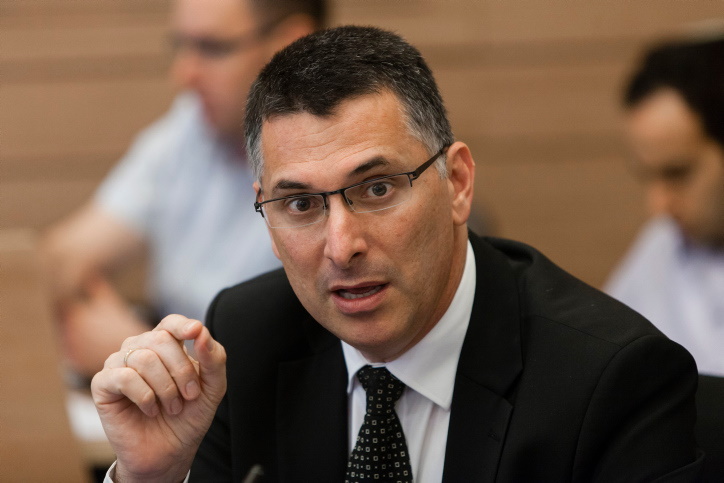Since Oct. 7, Iran has continuously threatened to launch a regional conflict against Israel.
By Amelie Botbol, JNS
Israeli Cabinet minister Gideon Sa’ar announced on Sunday that he will begin work to bring Iran before the International Court of Justice on genocide charges.
After speaking with Israeli National Security Adviser Tzachi Hanegbi, Sa’ar told JNS on Monday that he will likely be bringing the matter before Prime Minister Benjamin Netanyahu in the coming days to convince him to move forward with the creation of a dedicated task force.
“When it comes to genocide accusations, Israel does not belong in the defendant seat, but rather on the prosecuting side in a case against Iran, which is a classic genocidal state,” he said.
Sa’ar’s initiative comes after South Africa brought Israel before the ICJ on charges of of violating the 1948 Convention on the Prevention and Punishment of the Crime of Genocide.
The court on Friday rejected South Africa’s request to order provisional measures against Israel including an immediate halt to Israel’s war against Hamas in the Gaza Strip.
The court, which is based in The Hague, ordered Israel to “take all measures within its power” to prevent the commission of genocide against Palestinians in Gaza, to ensure that Israel Defense Forces troops do not commit acts of genocide and to punish alleged public incitement to genocide.
The ruling also called on Jerusalem to “take effective measures to preserve evidence” of military actions that might fall under the Convention on the Prevention and Punishment of the Crime of Genocide and submit a report to the court within a month.
“Since I am certain that Israel’s enemies, Iran and Hamas, are behind South Africa’s action and Nicaragua’s submission of a request to the ICJ to prosecute Israel, it is very important to hold Iran accountable for its action against the Jewish state in the international arena,” said Sa’ar.
“There are public statements of Iranian leaders calling for the elimination of the State of Israel, which are consistent with Iran’s policy of supporting, financing, training and arming Hamas and [Palestinian] Islamic Jihad in the wake of the Oct. 7 attacks,” he added.
Iranian officials overtly praised Hamas’s Oct. 7 massacre of 1,200 people in southern Israel, with Iran’s Islamic Revolutionary Guard Corps claiming on Dec. 27 that the attack came in retaliation for the 2020 killing of IRGC Quds Force head Qassem Soleimani by the United States.
Speaking at the funeral for the 89 victims of a Jan. 3 Islamic State suicide bombing in Kerman, Iran, Iranian President Ebrahim Raisi said, “the ‘Al Aqsa Flood’ [Hamas’s name for the Oct. 7 attack] operation would bring about the end of the Zionist regime.” The ISIS bombing had targeted a memorial event for Soleimani.
Earlier this month, Iran’s Supreme Leader Ayatollah Ali Khamenei tweeted in Hebrew that Israel’s “crimes” will still be remembered after the Jewish state is gone.
“The crimes of the Zionist regime will never be forgotten. These crimes will not be forgotten even after the Zionist regime is destroyed, by the grace of God. Authors will write in books that these people killed thousands of children and women in a matter of weeks,” the country’s top religious authority wrote.
Iran is widely believed to have played an important role in the planning of the Oct. 7 attacks.
Besides Iran’s long-standing financial support of Palestinian terror factions, it also provided logistic support in the form of military training to 500 members of both Hamas and PIJ prior to Oct. 7.
Iran is also known to have smuggled rockets and other weapons to Palestinian factions in the past, including via tunnels connecting Gaza to the Sinai Peninsula.
“The Oct. 7 massacre was a clear act of genocide; If Hamas terrorists had been able to do more, they would have, in accordance with Hamas’s charter, which calls for the elimination of Israel and the killing of Jews,” said Sa’ar.
“We have a state [that] declares [its intent] and clearly takes action to eliminate Israel, as such I believe that Israel must act in the international arena, taking into consideration that Iran has signed and ratified the Convention on the Prevention and Punishment of the Crime of Genocide,” he added.
Since Oct. 7, Iran has since continuously threatened to launch a regional conflict against Israel. Hezbollah, Iran’s Lebanese proxy, has been launching near-daily attacks on Israel since Oct. 7, leading to the evacuation of 80,000 residents of northern Israeli towns and villages.
Former Israeli Ambassador to the United Kingdom Daniel Taub welcomed the initiative to bring Iran before the ICJ and called South Africa an accomplice of Hamas in its effort to tie Israel’s hand and prevent the Jewish state from defending itself against Hamas.
“It’s absolutely clear that Iran deserves to be on the bench far more than Israel or anyone,” said Taub at a Jerusalem Press Club briefing.
“If we have confidence that the court can reach an effective decision, we should use all measures at our disposal to bring Iran and its accomplices of terror on the defense bench for their financial support and involvement in terrorism not just in Gaza but on all fronts,” he added.


